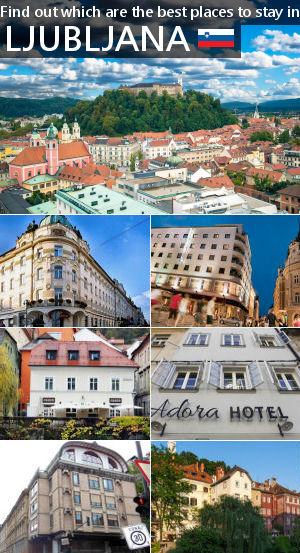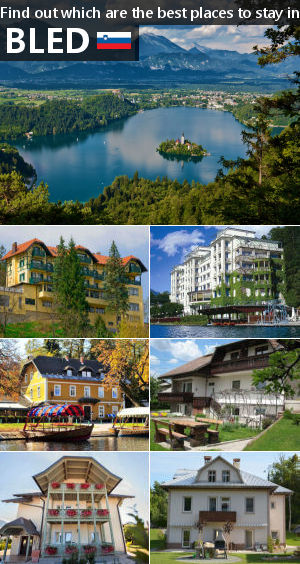Introducing The Piran Aquarium
The Piran Aquarium was founded in 1964 and is now the biggest aquarium in Slovenia with its collection of more than 120 species and 25 aquarium tanks. It showcases a good selection of fish and invertebrates living in the northern Adriatic Sea. The aquarium tanks are relatively small, with a capacity between 250 and 400 litres, but many visitors are surprised about the variety of the species they can see in the aquarium. Even though there are mostly smaller species, due to the limited space, visitors can see several bigger fish, including small sharks. Most of the specimens are collected by local divers with the help of fishermen. Twice a week, every Wednesday and Sunday, visitors can observe feeding, and, if they wish, help with the food preparation.
Piran Aquarium Review
One of the many tourist attractions in the charming coastal town of Piran is a small, but very interesting aquarium. The aquarium is housed in the beautiful Villa Piranesi which stands beside the Piran harbour, about 100 meters south of the Tartini square. Entry is €5 for adults and €3 for children between 2 and 15 yrs old, which is somewhat high for a relatively small aquarium with 25 tanks, but it’s worth the money and the tickets give reduced entrance charges to several of the other museums in the town.
The aquarium focuses on local marine animals and is well laid out. Visitors can see a wealth of colours and shapes hiding almost every species of the northern Adriatic Sea, all looking healthy and well displayed. It would be easy to just stroll through and out again within 5 minutes. However it is a museum where closer study of the exhibits brings rewards. Next to each tank is a picture and name of what is in the tank in three languages (Slovenian, English and Italian). You can see families where the children are looking at the labels and then trying to find each specimen. This could be fairly challenging as the camouflage of some of the exhibits is really stunning.
Guided tours are available. Twice a week, visitors can take part in animal feeding. In May, June and September the museum is open daily from 9:00 to 19:00 and in July and August from 9:00 to 20:00; the rest of the year it is open Tuesday through Sunday from 9:00 to 17:00. The museum is accessible also for those with walking problems or in wheelchairs via the front door ramp (see the photo).
All in all, a little expensive for what you see but if you are into aquariums and you want to see what’s in the sea nearby instead of from exotic shores then Piran aquarium is a must visit when you are in the area. Colourful, well labelled and educational, it is ideal also for children to visit.
Opening hours:
January to April: Tuesday to Sunday 9:00 to 17:00, closed on Mondays;
May and June: daily 9:00 to 19:00;
July and August: daily 9:00 to 20:00;
September: daily 9:00 to 19:00;
October to December: Tuesday to Sunday 9:00 to 17:00, closed on Mondays.
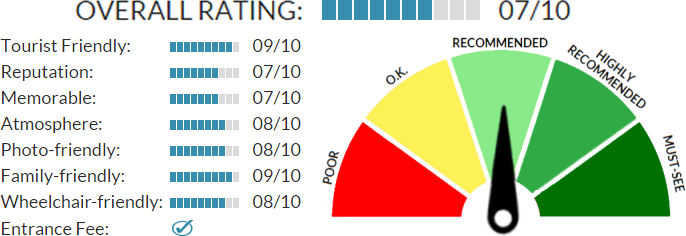
Piran Aquarium Pictures
View the image gallery with high-resolution photos that prove you absolutely have to visit the Piran Aquarium in Piran, Slovenia!
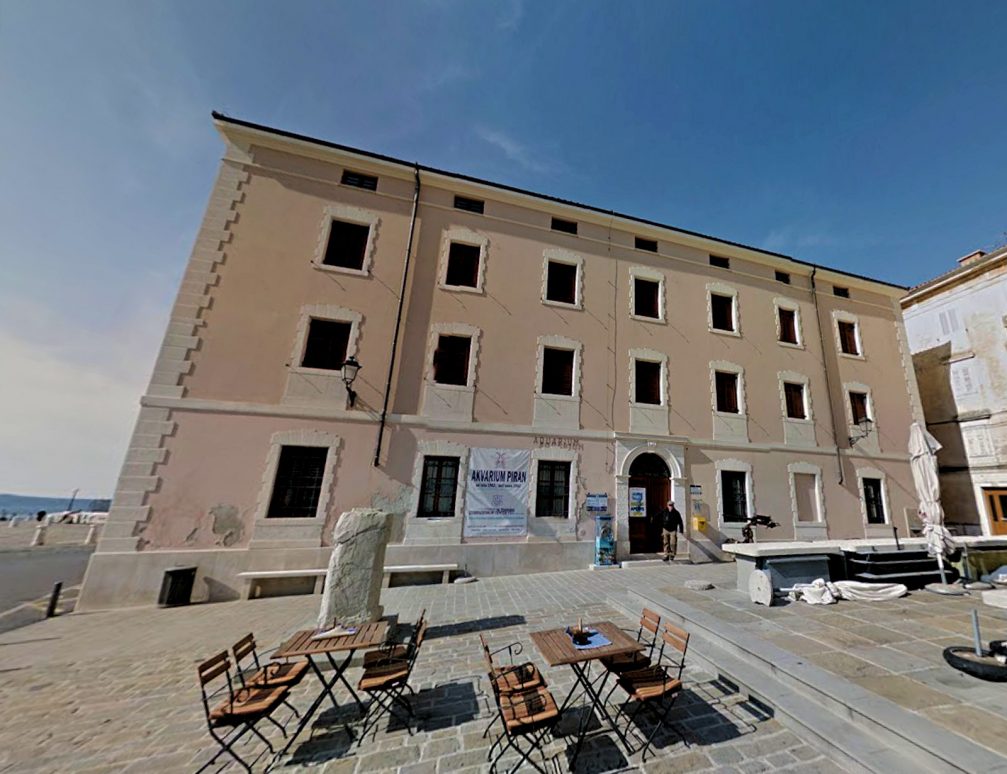
The aquarium occupies the ground floor of the Villa Piranesi building.
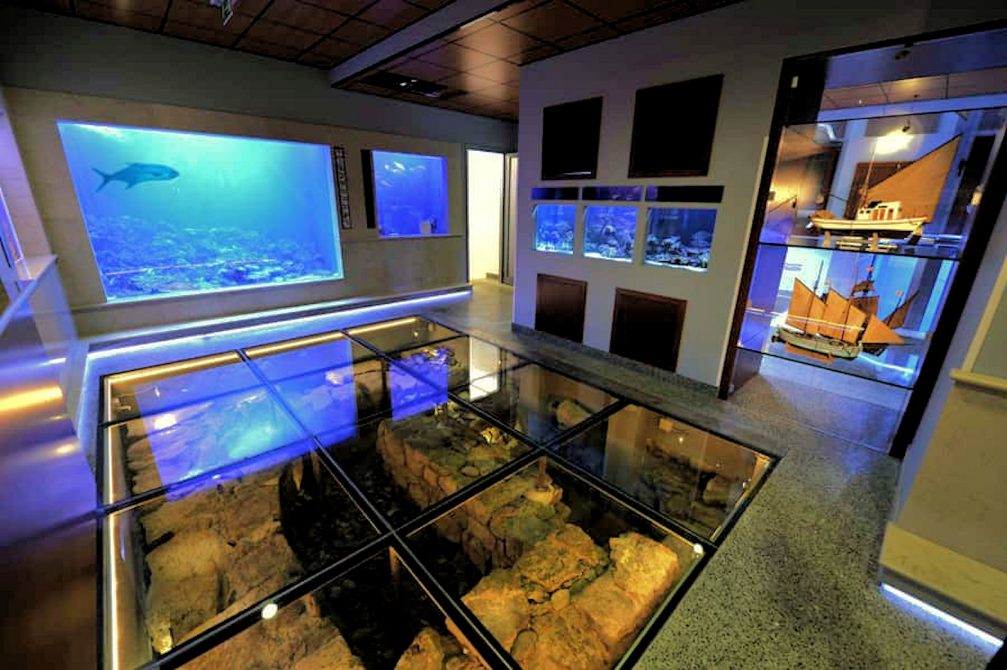
Interior of the aquarium. There are 25 tanks in the aquarium featuring more than 120 species.
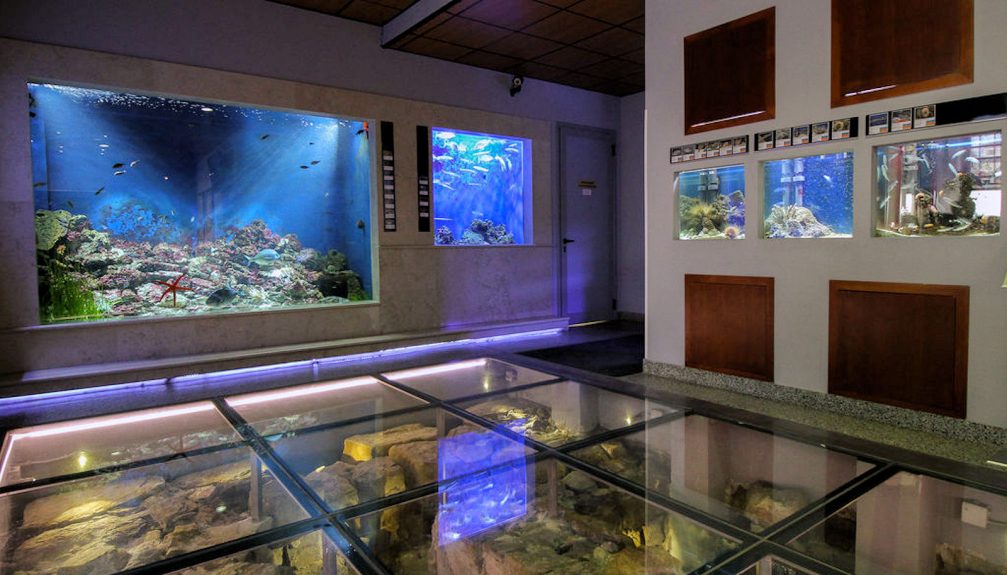
The aquarium might be small, but there is a marvellous variety of sea life packed into its 25 tanks.
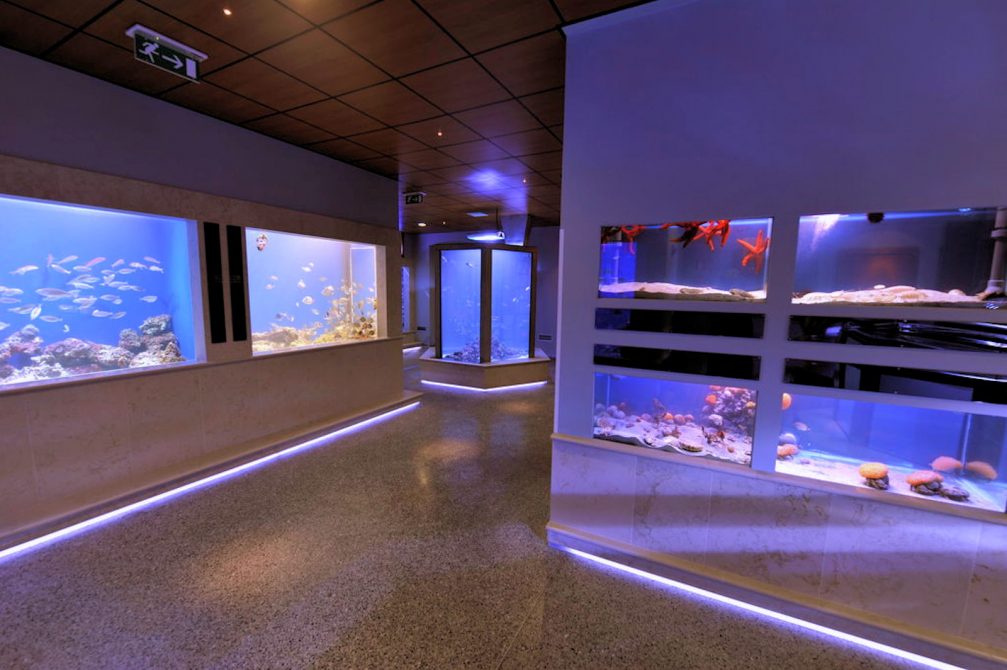
The aquarium tanks have a capacity between 250 and 400 litres.
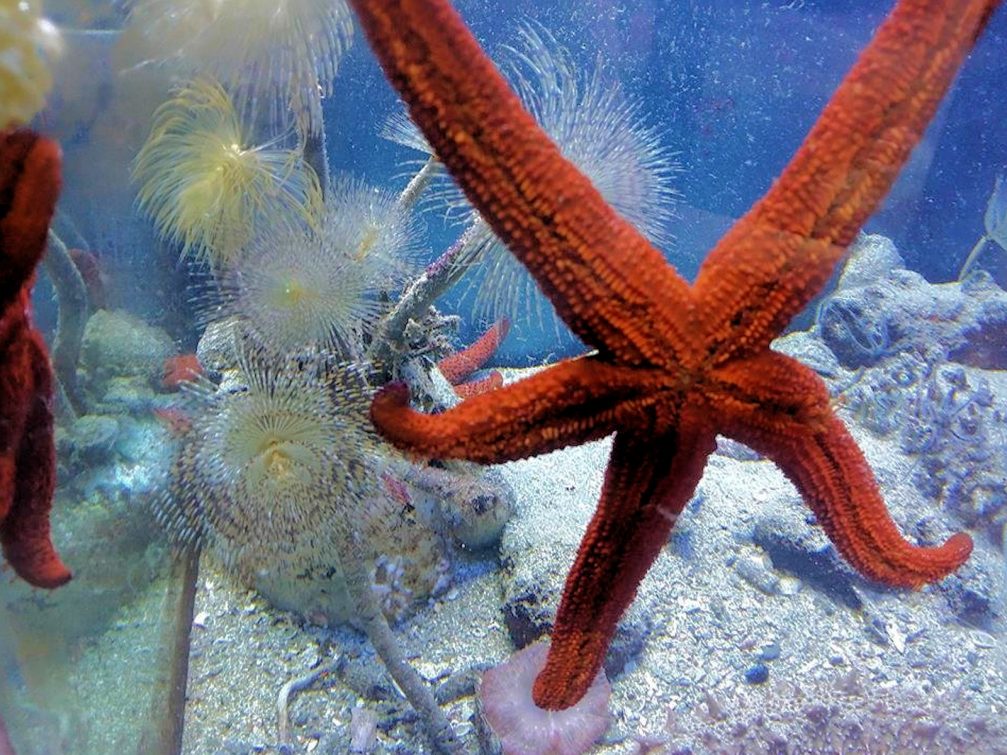
The aquarium features almost all animals living in the northern Adriatic Sea.

Moray eels are one of the most interesting species of fish that can be seen at the aquarium.
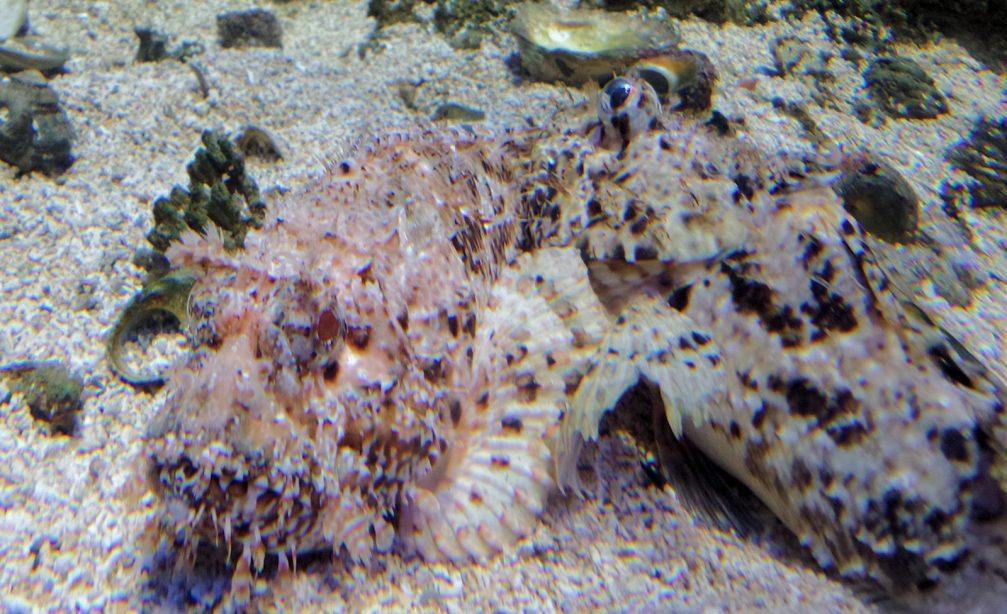
The camouflage of some of the exhibits is really stunning.

Sea Anemones are such fascinating creatures.

Entrance to the aquarium. (Image by Erik / CC BY 2.0)

The aquarium is housed in the Villa Piranesi building beside the harbour.
Photos courtesy of Aquarium Piran
Piran Aquarium location on the map
Address: Kidricevo nabrezje 4, 6330 Piran, Slovenia
Latitude and Longitude Coordinates: 45.527885, 13.567228
GPS coordinates: 45° 31′ 40.386” N 13° 34′ 2.0208” E
Region: Littoral
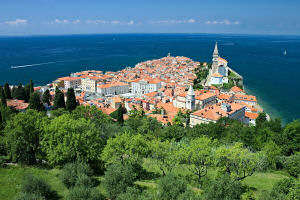 The charming coastal town of Piran is a medieval jewel on the Adriatic coast, situated at the cape of the Piran peninsula on the northern side of Istria, with Italy on the horizon. Since being part of the Republic of Venice, Piran has a rich cultural heritage and the close Venetian influence is immediately apparent in its architecture with the narrow winding streets, houses huddled close together, rising in cascades, beautiful squares and churches and breathtaking sea views. |
| |
|---|
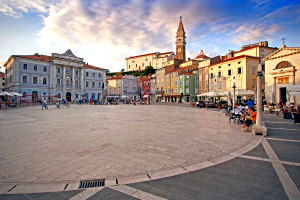 Overall Rating: The Tartini Square is a lovely square in the heart of the medieval walled Venetian town of Piran, the most famous town on Slovenia's 43-kilometre coast, which sits between Italy and Croatia. For a small town this is a wide open and quite large square. It's very Venetian in its white marble paving and surrounded by charming, Venetian buildings with wonderful architecture displayed. |
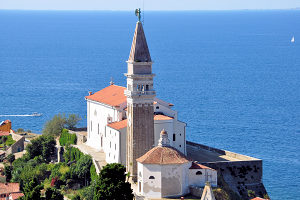 Overall Rating: The Church of St. George is the jewel on the crown of Piran. Originally built in the 12th century, its current structure dates from its expansion in the early 14th century, and its subsequent Baroque revamp in 1637. The church is beautifully decorated with frescos, marble altars and a large statue of St George slaying the dragon. |
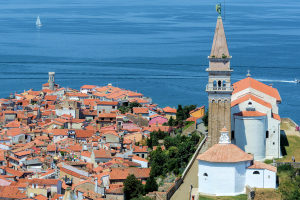 Overall Rating: In front of the Church of St. George, built separate from it in 1608, is the iconic 46,45 metre-high bell tower. There are 146 steps that lead to the top of the bell tower that houses four bells and is capped with a pyramidal spire. At the top of the tower sits a weather vane in the form of the 3,6-metre-tall Archangel Michael. |
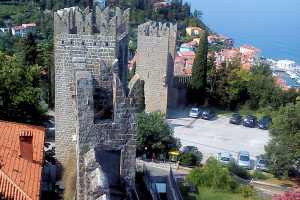 Overall Rating: Piran's Town Walls were built in various stages from the 7th to early 16th century and are one of the most famous attractions in the town. Originally the walls enclosed only the area west of the main Tartini square but between the years 1470 and 1534 expanded to include the entire peninsula. Sections of the wall and seven gates still stand throughout Piran, though the rest of it has been demolished. The walls themselves are great and quite impressive and you can climb to quite a height. The view however is the main reason to visit! |
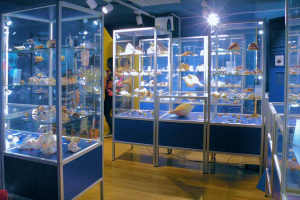 Overall Rating: The Piran Shell And Snail Museum with its permanent exhibition the Magical World of Shells is one of the best and most interesting museums in Slovenia. It features more than 4,000 specimens of rare and unique mollusks from all around the world. You'll see some of the most unusual clams, sea urchins, crabs, sea stars, and much more, varying in sizes and shapes. |
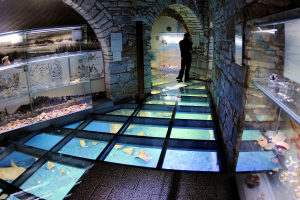 Overall Rating: Piran’s maritime history is exhibited at the superb Sergej Masera Maritime Museum. Named after a famous Slovenian sailor from Gorica, the museum offers information on Slovene naval history, the Adriatic Sea, sailing, fishing, salt-making and much more. The bulk of the museum collections is housed in the wonderful 19th-century Gabrielli Palace, right at the waterfront near Tartini Square in the historic centre of Piran, but quite a few of its collections are also presented elsewhere. |
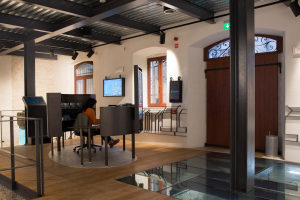 Overall Rating: If you are in Piran, try to take the time to visit this small, pleasant museum and make sure you attend the 3D movie to learn about the history of Piran. It will give you much more of an appreciation for this charming coastal town. |
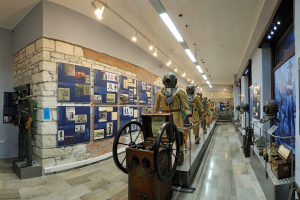 Overall Rating: The Museum of Underwater Activities Piran is a small but very interesting museum that gives an excellent overview of the history of diving in the Adriatic Sea, exhibiting old deep-sea diving suits and helmets. Besides the collection of antique diving equipment, the museum also has several models of submarines and the uniforms of their crews on display. |
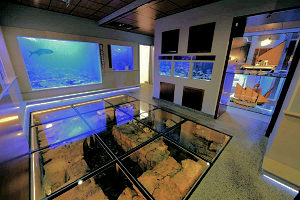 Overall Rating: The Piran Aquarium was founded in 1964 and is now the biggest aquarium in Slovenia with its collection of more than 120 species and 25 aquarium tanks. It showcases a good selection of fish and invertebrates living in the northern Adriatic Sea. |
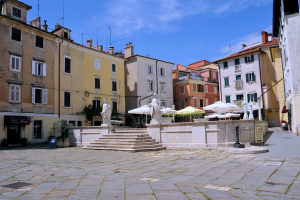 Overall Rating: The First of May Square, previously known as the Old Square, was the centre of Piran until the 13th century. It is surrounded by mainly baroque-inspired architecture as well as a few restaurants. art galleries and a great little wine bar. In the centre of the square, on a raised platform, there are a few eye-catching statues and a stone rainwater cistern which was built in the second half of the 18th century after the region suffered a severe drought. |
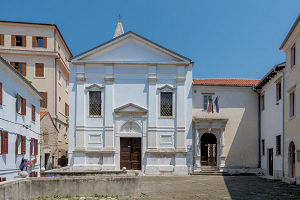 Overall Rating: The Church of St Francis Assisi dates back to the beginning of the 14th century, but has been enlarged and renovated over the centuries. The present interior dates back to the 17th century and the exterior is from the 19th century. Attached to the church is a Franciscan monastery with a splendid atrium, the cloister, which is considered by many as the most beautiful in Slovenia. In the monastery's basement there is a superb collection of paintings by various Venetian artists. |
| The accommodation options in Piran can be divided into five main categories: hotels, guest houses, B&Bs, apartments and hostels. |
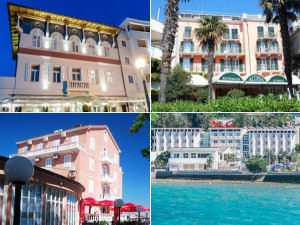 The charming coastal town of Piran is one of the most popular tourist destinations in Slovenia, but being such a small town, there are not many hotels in Piran. Actually, there are only four of them. We've reviewed all of them so take a look and find out which one would best suit your needs, style and budget. |
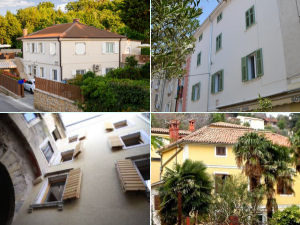 Piran guesthouses are definitely a good choice for a place to stay as they are comfortable and wallet-friendly with owners who take an interest in their guests. Some guesthouses also offer a breakfast buffet in the morning that has quite a few choices and is usually very good value for money. Find out which guesthouses in Piran we recommend and why. |
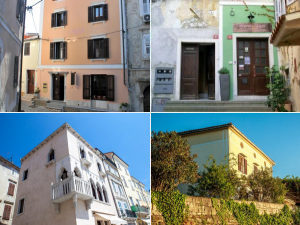 Bed and breakfasts are a budget-friendly way of staying in Piran. In essence you get a room and usually also a private bathroom in someone's house, with breakfast included in the price. Take a look and find out which bed and breakfasts in Piran we recommend and why. |
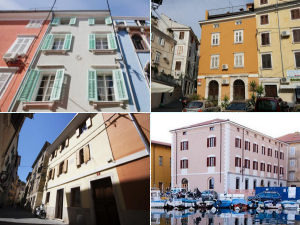 Apartments are a great option in Piran as they are cheaper than a hotel room but more spacious, well-equipped, and with a kitchen to save money on eating out. But be careful, the rates and quality vary seriously, so always do a good research before you book an apartment for your stay! Here you will find the apartments that we think are the best ones in Piran right now. |
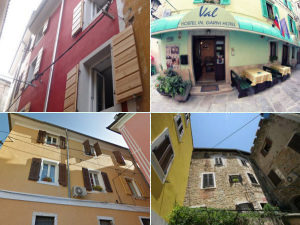 Hostels are the cheapest places to stay in Piran. Most spaces and amenities are shared, but even if you’re not up for the cheapest option - a bed in a dorm room - you can often get a basic private room for significantly less than the cost of a low-end hotel or privately rented room. Competition between Piran hostels has grown over the past five years and there are now some really good hostels in Piran. Find out which are the ones that we recommend and why! |


